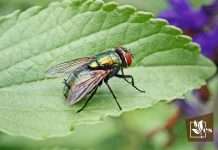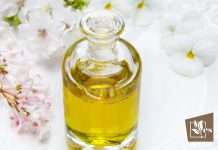Neem oil smell is a bit pungent and robust, like roasted nuts or garlic. Cold-pressed oil extracted from the neem tree is a potent pesticide used in gardening.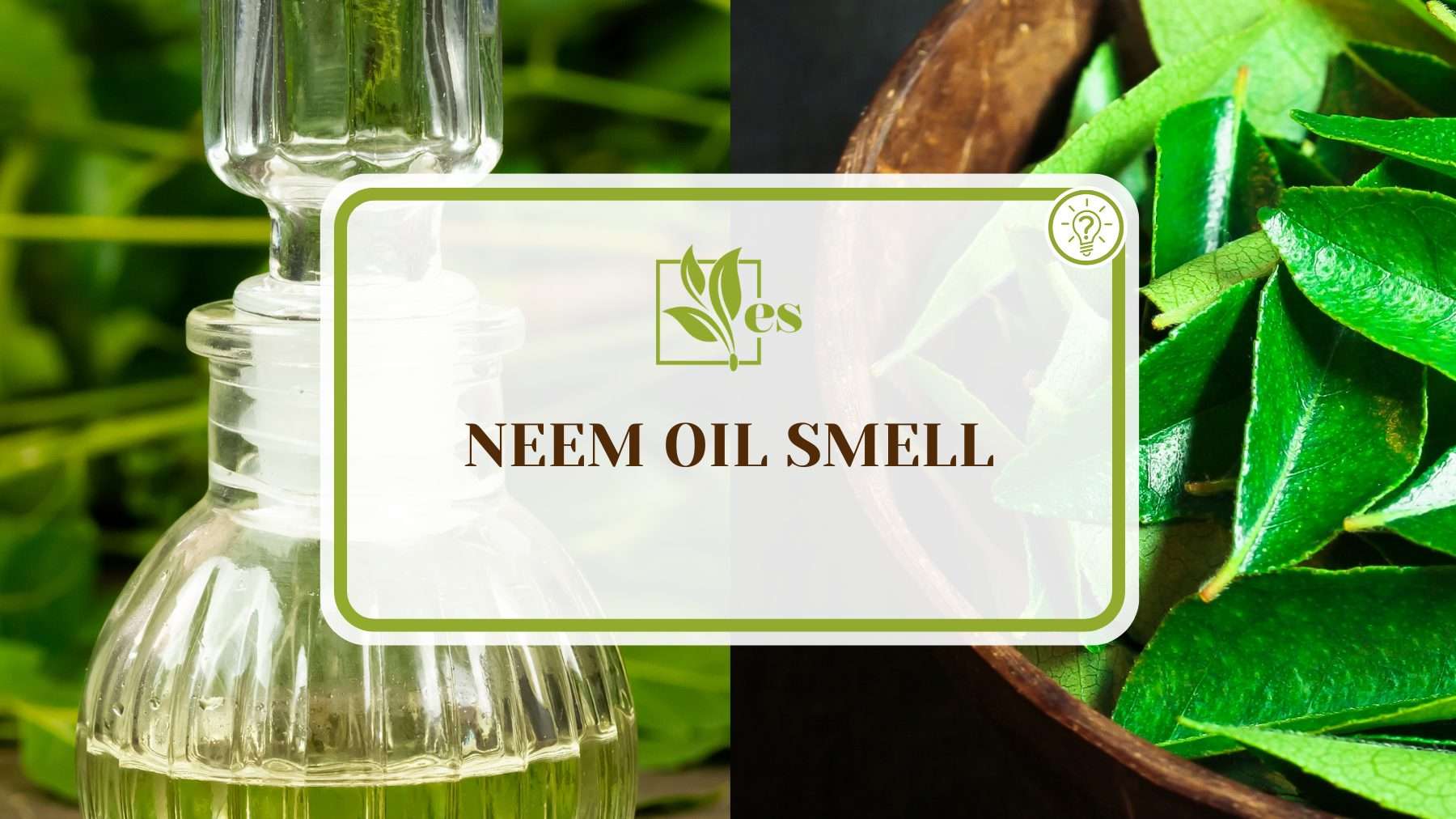
This article will discuss what this oil smells like and some ways to eliminate it. Carry on reading to find other pesticides for home use that do not smell as strongly.
“Azadirachtin, a major component of neem oil, breaks down rapidly in the environment, ensuring that it doesn’t persist for long periods, making it environmentally friendly for garden use.” – National Pesticide Information Center, Oregon State University Extension Services
JUMP TO TOPIC
What Is the Smell of Neem Oil Like?
Neem oil smells like a nutty substance and has a powerful aroma that is earthy. Its smell resembles garlic or sulfur and feels sharp to the nose. This oil smells unpleasant and robust to those not used to it. However, it can change as the oil goes through transitions.
Neem oil is not toxic to breathe for humans in small quantities. When inhaled, vapors emanating from a properly mixed solution have been known to relieve asthma symptoms. However, inhaling vapors of a very concentrated solution should be avoided; otherwise, lung irritation might occur, if you are worried that is neem oil toxic to breathe for humans.
– The Smell of Expired Neem Tree Oil
Oil extracted from pressing the neem plant should have a pungent smell like garlic or sulfur. Some varieties produce a nutty aroma that closely resembles that of roasted peanuts, only slightly firm.
This oil quickly turns rancid and then develops an equally sharp foul odor. Just touching the pure neem oil bottle’s mouth is enough to tell it has expired, and this is when it wouldn’t smell as earthy as the fresh one would; on the contrary, it would be more harmful, and even look different from the fresh kind and have a strong odor
– The Smell When Mixed With Water
When this oil is mixed with water and diluted, its smell becomes less intense but will not disappear entirely, but it would weaken in the right timing. The nutty aroma persists even when just one tablespoon is added to one whole gallon of water. More concentrated solutions will smell even more vital, and in such a case, if rancid oil is mixed with water, its foul odor becomes amplified.
This will also make it safer to smell beneficial insects, even bees. This oil will only harm the bees on direct contact and in undiluted form. Once the oil has been diluted and sprayed on the plants, it becomes quite harmless for the bees visiting that plant; if you are worried and thinking, is neem oil safe for bees in terms of smell.
How Long Does Neem Oil Smell on Plants Last?
Neem oil smell on plants lasts for around three to six days, depending on its use. It might stay for almost a whole week when used in undiluted form. When sprayed on the plants, the smell might last for only two days only.
– Fresh Oil Smell
Oil in its pure form stays over the surface of the plants for three to five days. Their nutty and pungent aroma also lasts for three to four days when applied to the plants in the strong and pure way it exists. The smell will last until all the oil dries up entirely, and then it wouldn’t smell any longer.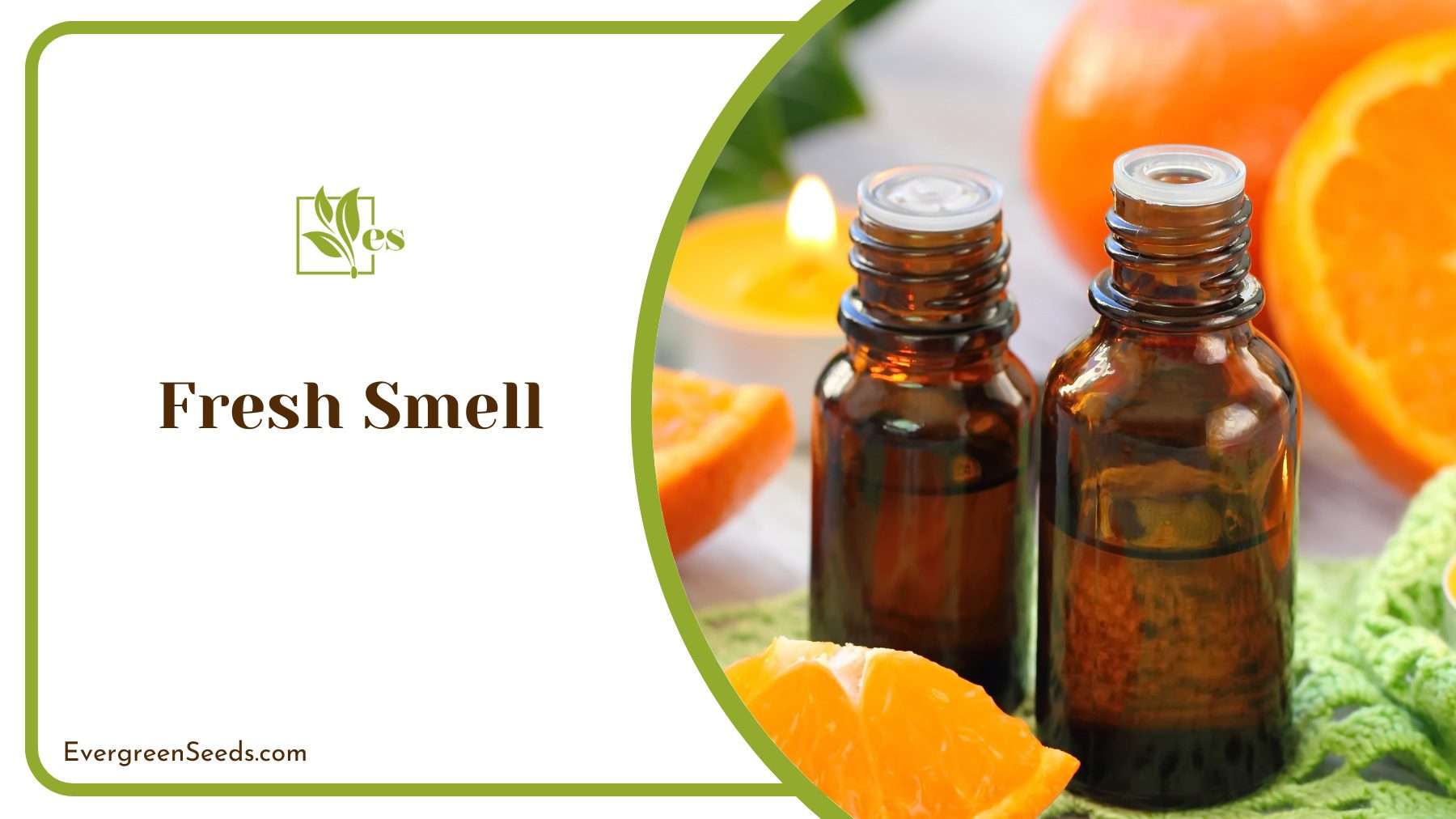
On the bright side, plants tend to secrete water on their surface during a process known as transpiration. This water then dilutes the oil and helps break down its smell-producing compounds. Dew drops that fall on the plants at night also expedite this process. If the air is too dry and hot, the oil breakdown is slower, and the smell might last for the whole week.
– Water Mixed With Oil
When water is mixed with oil, it breaks down faster than usual, and its smell goes away sooner than three to six days. The key reason here is that when you dilute it, you will be using a bit of soap to emulsify and a lot of water to mix it in, and that is why the smell will remain for a short time period as such.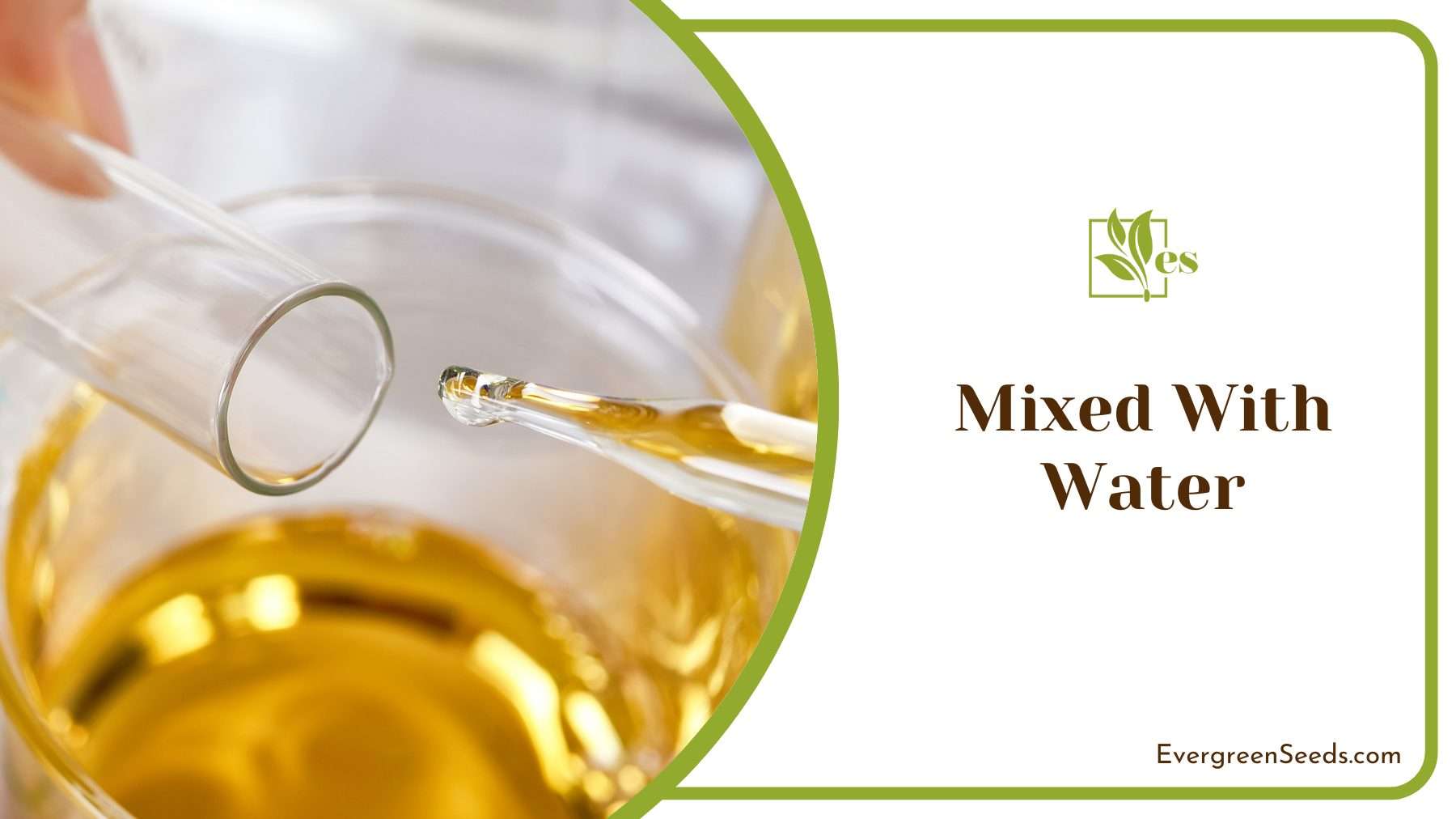
After spraying the plants with a neem oil and water spray, the smell might last for about two to three days maximum. If the plants are grown outdoors, the smells will go sooner because air, water, and sunlight help break down oil.
Once you get used to the smell of this oil, it doesn’t smell so bad; however, if it smells too bad, there are multiple ways of masking it. What you can do is only a few drops of essential oil like rosemary or jojoba oil will help mask its scent in foliar sprays and drenches. Diluting it with a large volume of water also decreases the intensity of the smell.
How to Make Neem Oil Spray So That It Doesn’t Smell?
To make a neem oil spray so that it doesn’t smell, you need to emulsify and mix it with water. The smell will not go away entirely but will be significantly more tolerable. The ratio of mixing oil with water is one ml of oil in 100 ml of water.
– Emulsify With Soap
Soap and oil need to be mixed in an equal amount. Otherwise, the oil will not mix well with water. This is called emulsification, which can be done using any liquid soap, and note that the best soaps for this oil are insecticidal soap or dishwashing liquid detergent soaps.
In this case, the advantage of using insecticidal soap is that the pesticide effect increases. On the other hand, using a dishwashing soap that is liquid would provide much better emulsification.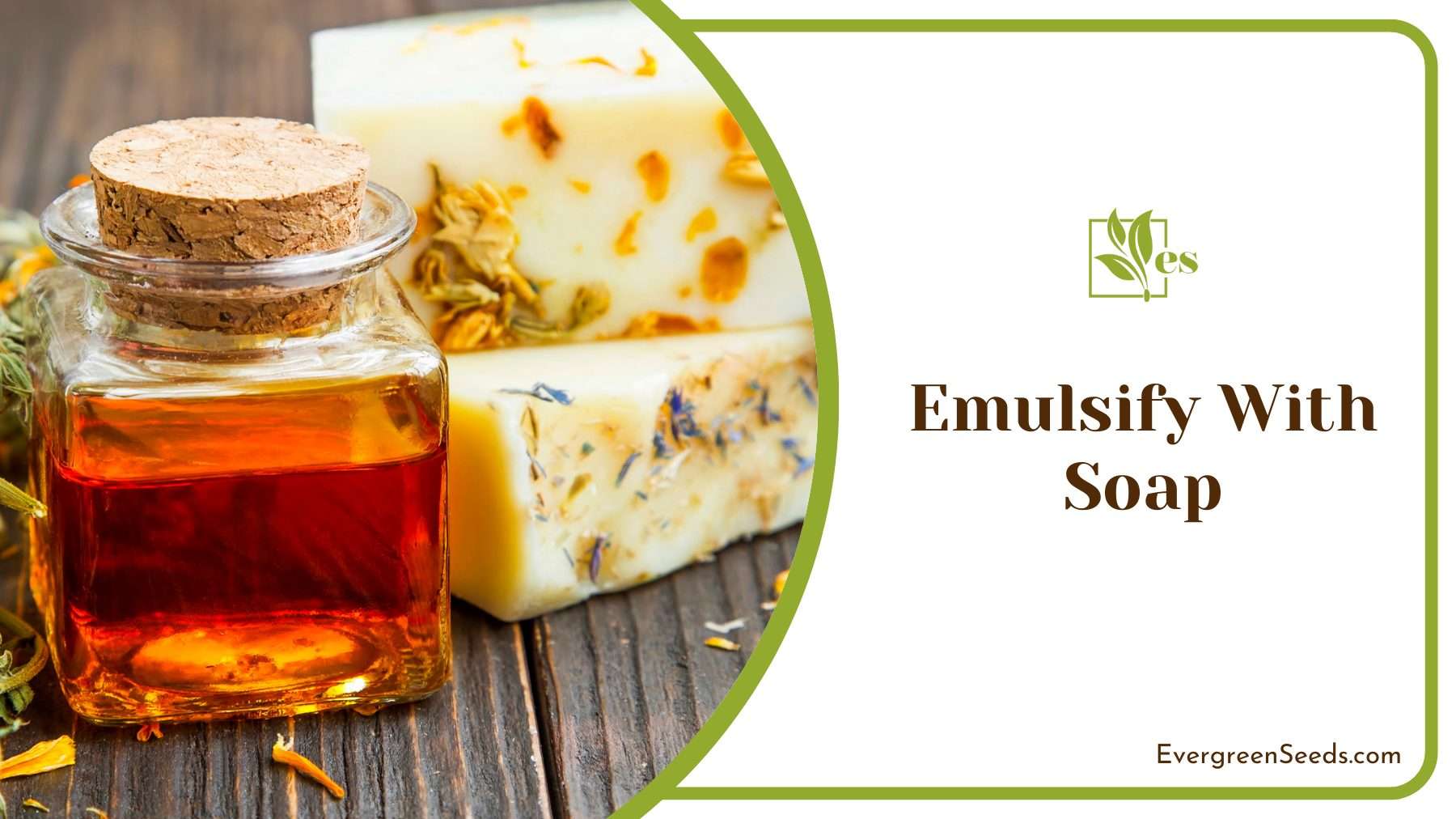
You can go ahead and mix oil and liquid soaps in equal tablespoons in one cup of warm water. Despite this, the oil will separate from moisture over time and must be re-shaken for two to three minutes.
– Emulsify With Silica Powder
Another way to emulsify the theraneem naturals neem oil is to use silica powder instead. The quantity of silica used is the same as that of the oil.
However, it must be mixed with one cup of filtered water before adding the oil so that it would mix in well. Once the oil particles stop floating on the surface of the water and disappear, the emulsification is complete.
– Dilute With a Large Volume of Water
Adding a large volume of water to emulsified neem seed oil is the last step to make a spray solution that stinks less. For every tablespoon of oil, add one gallon of water. The right way is to measure how one cup of oil spray, measure only 0.07 oz of water to add to the mix.
Yes, the smell of neem oil does go away once the oil dries or disintegrates entirely on the plant or the soil, so don’t worry about does neem oil smell go away. The smell of oil does not go away as long as it remains sealed in a bottle. Once it goes bad, the foul smell of oil also does not go away.
What Other Pesticides to Use if You Don’t Like Neem Oil Scent?
Other pesticides to use if you don’t like the neem oil scent are milk, baking soda, and vinegar from your pantry. Manufactured chemical pesticides like malathion or growth regulators are adequate substitutes for quick results. Some of them also produce scents, but it is at least tolerable.
– Use Fresh Milk
Fresh milk without any additives or contaminants typically has no scent. This is the ideal homemade remedy against pests for those with a keen sense of smell.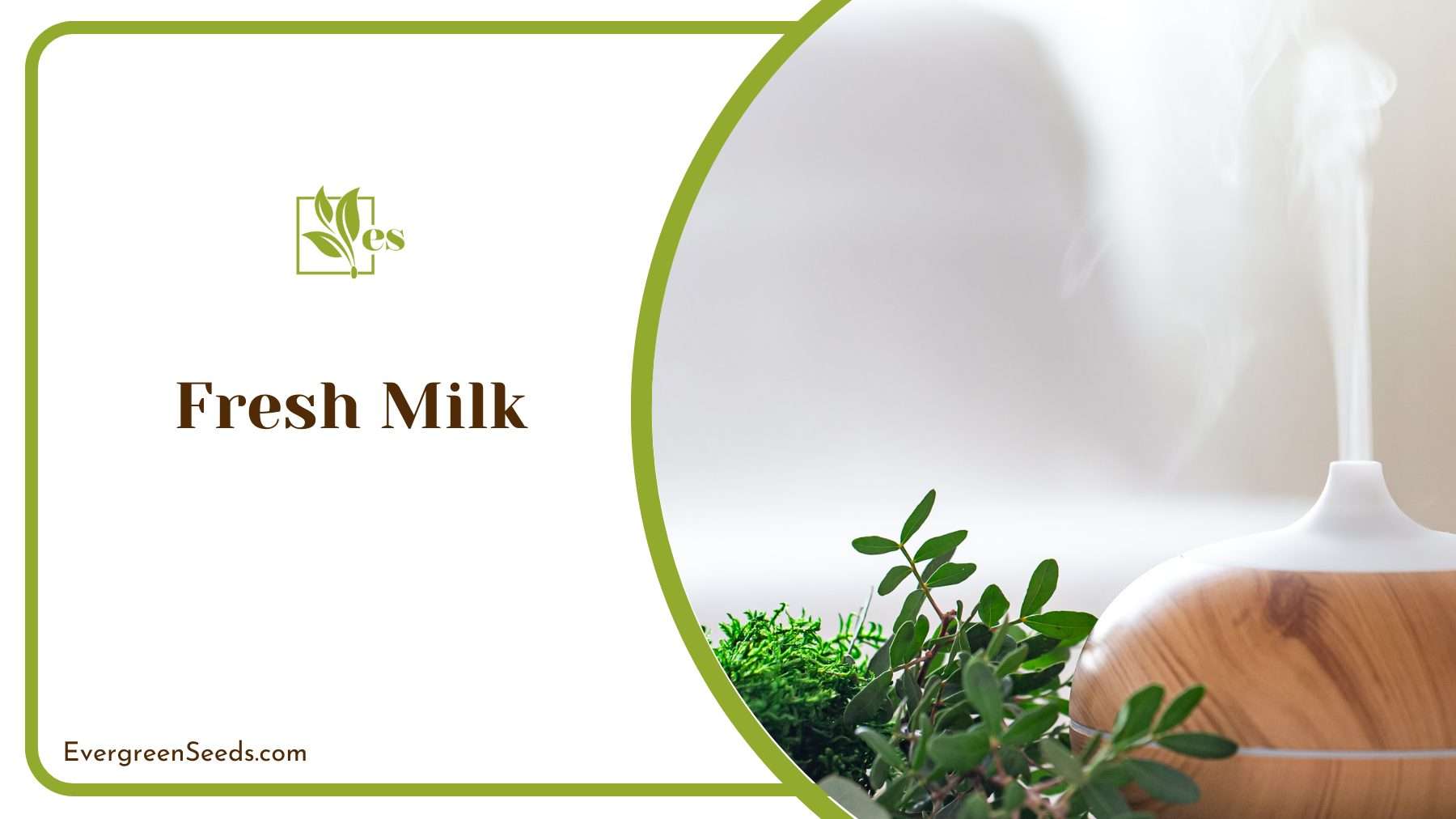
Simply adding a few drops of milk on a piece of cotton roll and wiping the undersides of the leaves will help kill the larvae and eggs of pests, it doesn’t work as effectively, but gets the job done. Alternatively, a milk and water solution in a ratio of one to one can also be used in spray form.
– Use Another Vegetable Oil
Not all vegetable oils smell as pungent as neem, and it is possible to substitute oil from the neem plant with another oil-based insecticidal spray. These sprays might need to be sprayed more often to have the same effect as neem, but at least they won’t smell so bad.
With coconut or sunflower oil, half a cup of oil per gallon of water is the standard ratio for making an effective pesticide. These oils already smell so good, but diluting them will eliminate even that scent. If you cannot tolerate smells of any kind, these oils are your choice’s natural pesticides.
– Use Vinegar Solution
Vinegar itself has a solid and sour smell that is quite noticeable. Since it is a commonly used household item, its smell is much more tolerable than oils like neem. Vinegar can easily substitute these oils when it comes to DIY pesticides, also, it has an acidic smell.
Make a home-based vinegar-based pesticide using one part vinegar with three parts water. This is the case of everyday kitchen use of vinegar here with an acetic acid concentration of five percent. Sure, vinegar with higher concentrations of sourness is much better at killing bugs. However, they also smell stronger and might burn plant leaves.
– Apply Insecticidal Soaps
Insecticidal soaps come in various types, and they are just as effective as the neem plant. Some of these soaps smell bad, but manufacturers are selling nice-smelling soaps. Moreover, they are cheap and will eliminate the eggs, larvae, and adult stages of all sap-sucking bugs but not as well and fast as neem does.
For this, you should mix this soap with water and then bathe the infested plant using the resultant soap solution. Make sure to scrub the area under the leaves where most bugs hide. In the end, wash the soap away with water, leaving you with a clean plant with no unpleasant smell.
– Use Chemical Pesticides
Chemical pesticides are no doubt the most effective when it comes to getting rid of bugs quickly. It will kill all kinds of bugs, from small ones like aphids to large ones like slugs. Pyrethin is the safest chemical insecticide available on the market and will kill only those bugs on the plant at the moment.
Some harsher chemicals in the market are malathion and growth regulators, but they must be used carefully. They also produce a chemical whiff that might be unpleasant, just like Neem oil. Systemic insecticides are another option; they are added directly over the soil, having no smell, or just a weak level of smell.


